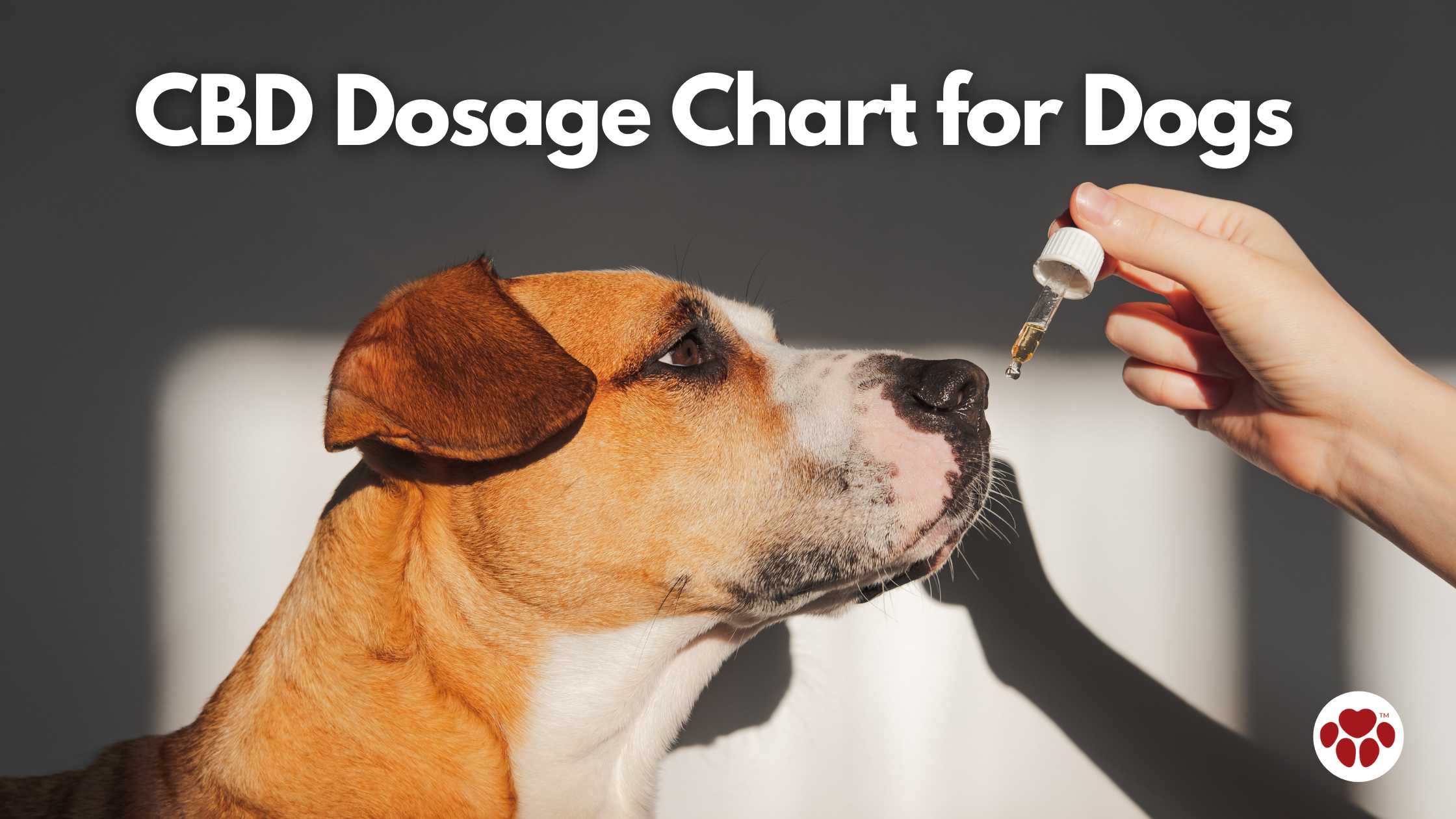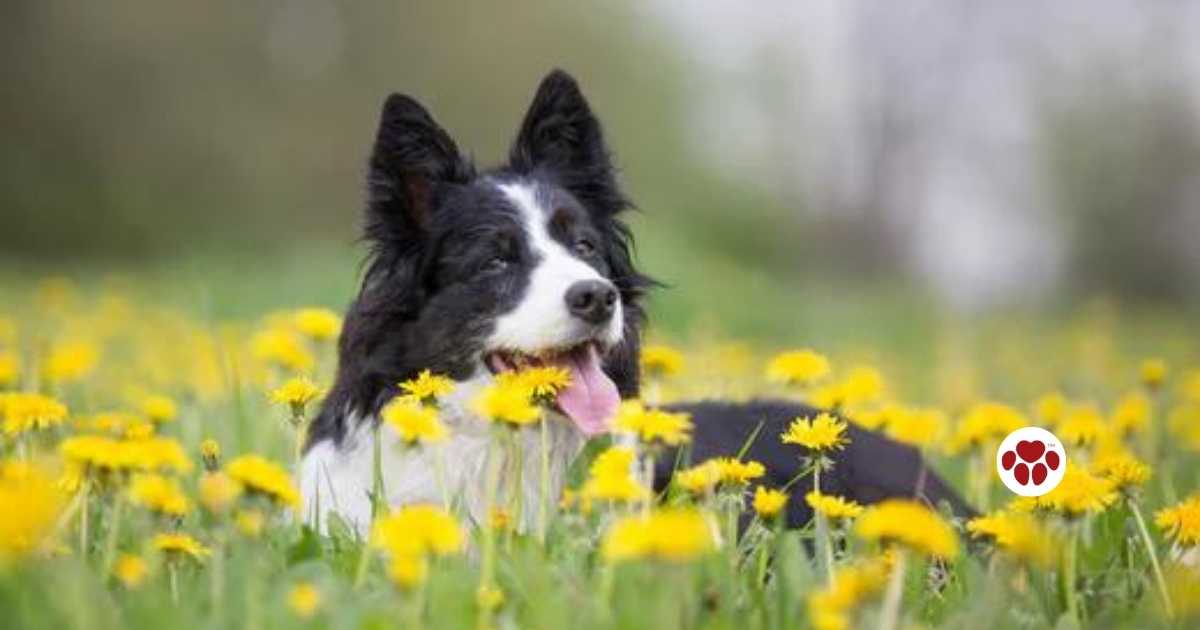
The Ultimate Guide to Labradoodle Health
The Ultimate Guide to Labradoodle Health
Welcome to the ultimate guide to Labradoodle health! Whether you already have a Labradoodle or are considering adding one to your family, this article will provide you with valuable tips and care information to ensure a happy and healthy furry friend as we discuss the following:
- Common Labradoodle Health Problems
- Labradoodle Exercise and Nutrition Guidelines
- Grooming and Hygiene for Labradoodles
- Labradoodle Vaccination and Preventive Care
- Grooming and Hygiene for Labradoodles
- Labradoodle Vaccination and Preventive Care
- Labradoodle Dental Care
- Labradoodle Mental and Emotional Well-being
- Is CBD Oil good for your Labradoodle?
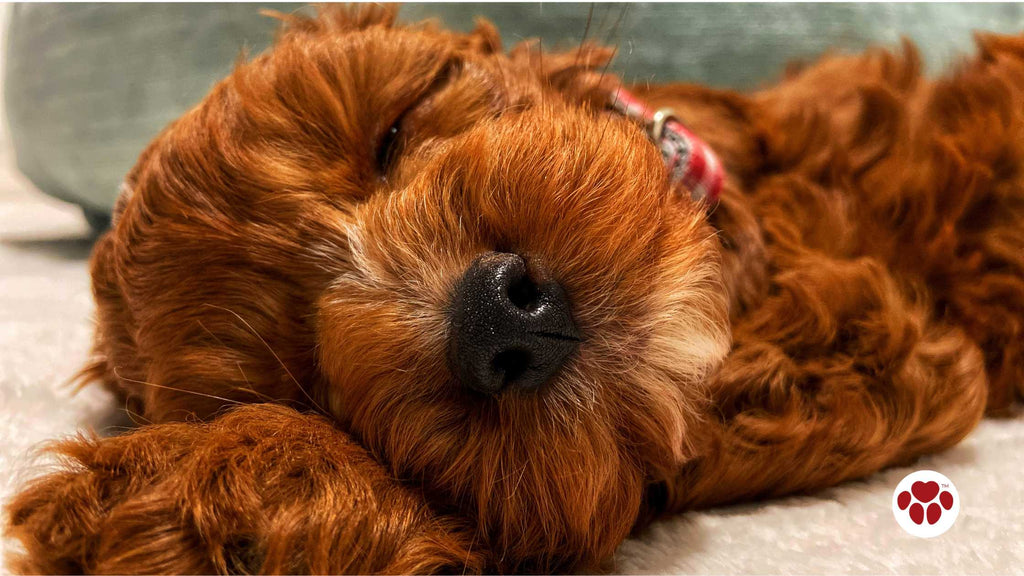
Common Labradoodle Health Problems
Labradoodles, like all dogs, can be prone to certain health issues. Understanding these issues can help you proactively keep your Labradoodle healthy and happy.
Hip dysplasia
One common health concern in Labradoodles is hip dysplasia. This is a condition where the hip joint doesn't develop properly, leading to discomfort and mobility issues. Regular exercise, a balanced diet, and maintaining a healthy weight can help reduce the risk of hip dysplasia (King, M., 2017). To help aid this painful condition, read “Exploring CBD Oil's Benefits for Dogs' Dysplasia Comfort”
Ear infections
Labradoodles are also prone to ear infections due to their floppy ears, which can trap moisture and bacteria. The study of Hayes, H., et al. in 1987 showed that “dogs with pendulous ears and heavy ear canal hair are more likely to have canine otitis externa, while dogs with erect ears and no ear canal hair are less likely to have the disease.”
It's important to regularly clean your Labradoodle's ears and keep them dry to prevent infections. Regular dental care is also crucial as Labradoodles can be prone to dental issues like gum disease and tooth decay. Here are ways to Avoid Dog Ear Infection (Floppy Ears? Listen Up! and Powerful Home Remedies to Eliminate Dog Ear Mites.
Allergies
Another health issue to be aware of is allergies. Labradoodles are often recommended for people with allergies due to their hypoallergenic coat, but they can still develop allergies themselves. Pay attention to any signs of itching, redness, or skin irritation, and consult your veterinarian for proper diagnosis and treatment.
By understanding these common health issues, you can take proactive steps to prevent them and ensure your Labradoodle's well-being. Read “Dogs' Allergy Alleviation: CBD Oil's Soothing Effects”
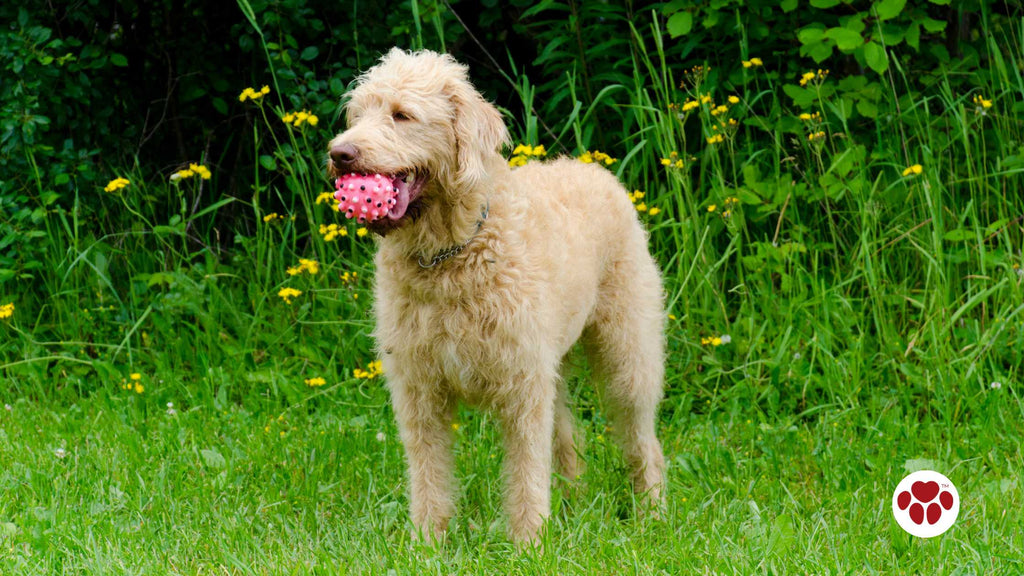
Labradoodle Exercise and Nutrition Guidelines
A well-balanced diet and regular exercise are essential for maintaining a Labradoodle's overall health and well-being. When it comes to nutrition, it's important to provide your Labradoodle with high-quality dog food that meets their specific dietary needs. Look for dog food that contains real meat as the main ingredient and avoids fillers and artificial additives.
A 2023 study by Jacuńska, W., et al on commercial puppy foods showed that “a balanced diet impacts a dog's energy, growth, immunity, and overall health, but some puppy foods may not fulfill essential fatty acid requirements.”Consult your veterinarian for specific recommendations based on your Labradoodle's age, size, and any dietary restrictions.
Labradoodles are an active breed and require regular exercise to burn off energy and stay mentally stimulated. Daily walks, playtime, and interactive toys are great ways to keep your Labradoodle active. They also enjoy activities like swimming and agility training. “Regular exercise in dogs can improve their heart function, with recovery heart rate faster than lean dogs with limited exercise,” according to the study by Frankel, T., & Kuruvilla, A. (2003).
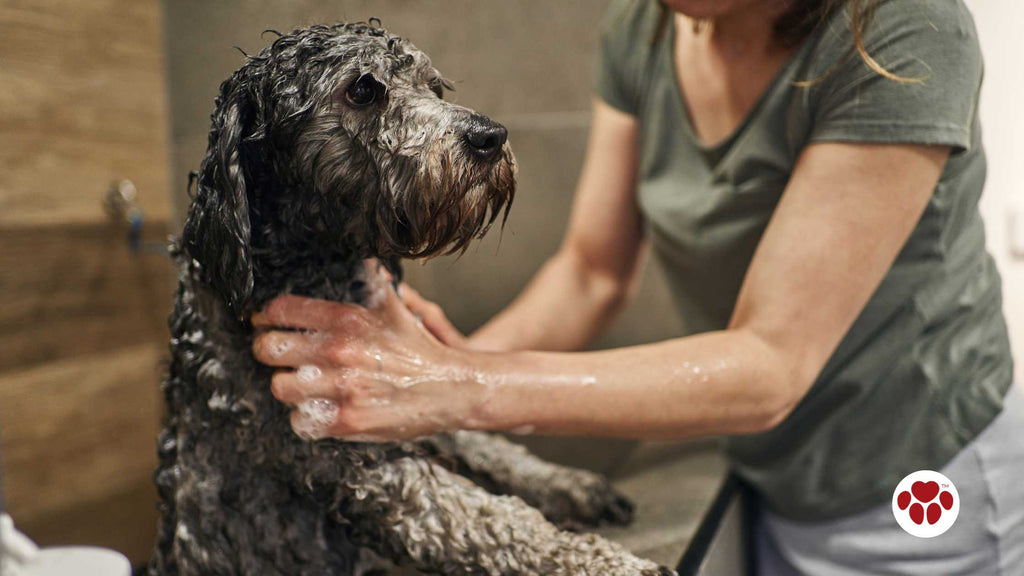
Grooming and Hygiene for Labradoodles
Labradoodles have a unique coat that requires regular grooming to keep it healthy and prevent matting. Regular brushing is crucial to remove loose hair and prevent tangles. Using a slicker brush or a comb with wide-spaced teeth can help untangle their fur without causing discomfort. It's also essential to schedule regular professional grooming sessions to maintain their coat's condition and trim their nails.
Bathing your Labradoodle should be done on an as-needed basis, usually every 6 to 8 weeks. Use a gentle, dog-specific shampoo and conditioner to avoid skin irritation. Be sure to rinse off all products to prevent residue buildup thoroughly. After bathing, towel dry your Labradoodle and use a hairdryer on a low setting to avoid overheating. Regular dental care is also important for Labradoodles. Brush their teeth regularly using dog-specific toothpaste and provide dental chews or toys to maintain their oral health.
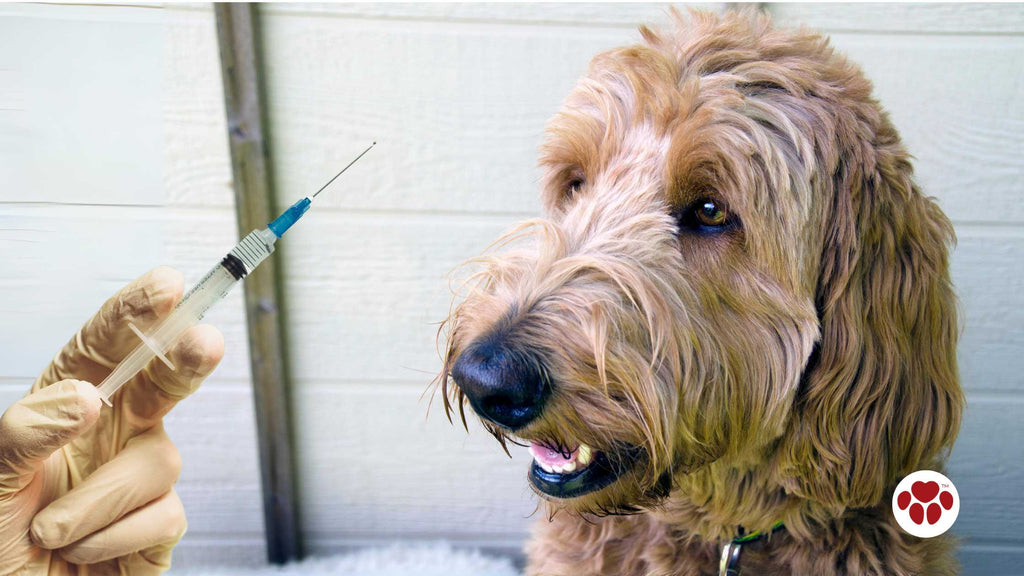
Labradoodle Vaccination and Preventive Care
Vaccinations are an essential part of Labradoodle health care. Consult your veterinarian to ensure your Labradoodle receives all necessary vaccinations to prevent common canine diseases. Additionally, regular check-ups and preventive care are important to detect any potential health issues early on. Your veterinarian can recommend a suitable schedule for vaccinations, parasite prevention, and overall health check-ups.
Preventive care also includes protecting your Labradoodle from fleas, ticks, and heartworms. Using a monthly preventive treatment recommended by your veterinarian will help keep these parasites at bay. Regularly check your Labradoodle's skin and fur for any signs of fleas or ticks, and promptly remove them if found.
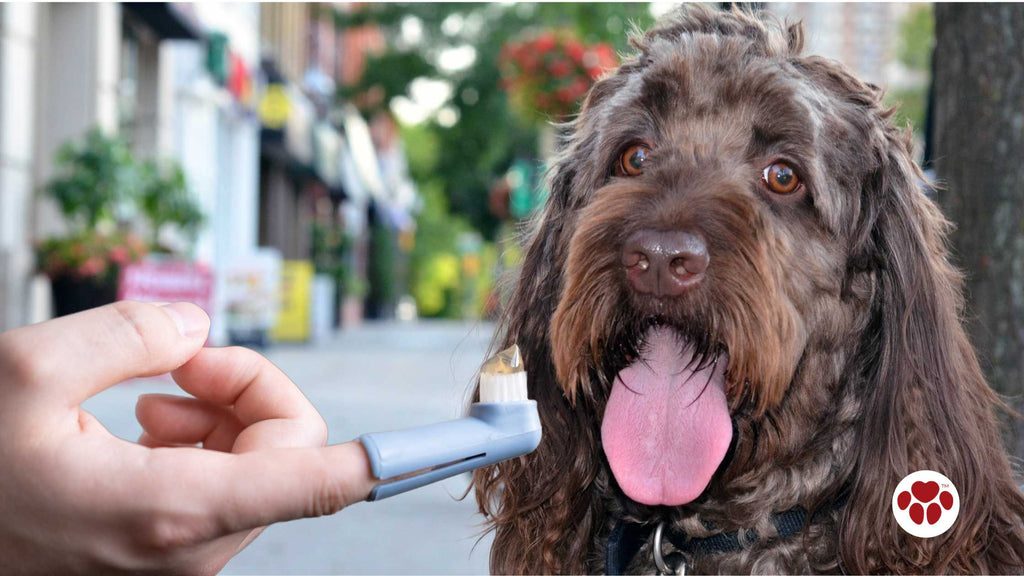
Labradoodle Dental Care
Dental hygiene is often overlooked but plays a crucial role in a Labradoodle's overall health. Poor dental care can lead to gum disease, tooth loss, and other health issues. To maintain your Labradoodle's dental health, establish a regular brushing routine. Use a dog-specific toothbrush and toothpaste to remove plaque and prevent tartar buildup. Additionally, providing dental chews or toys can help keep their teeth clean and healthy.
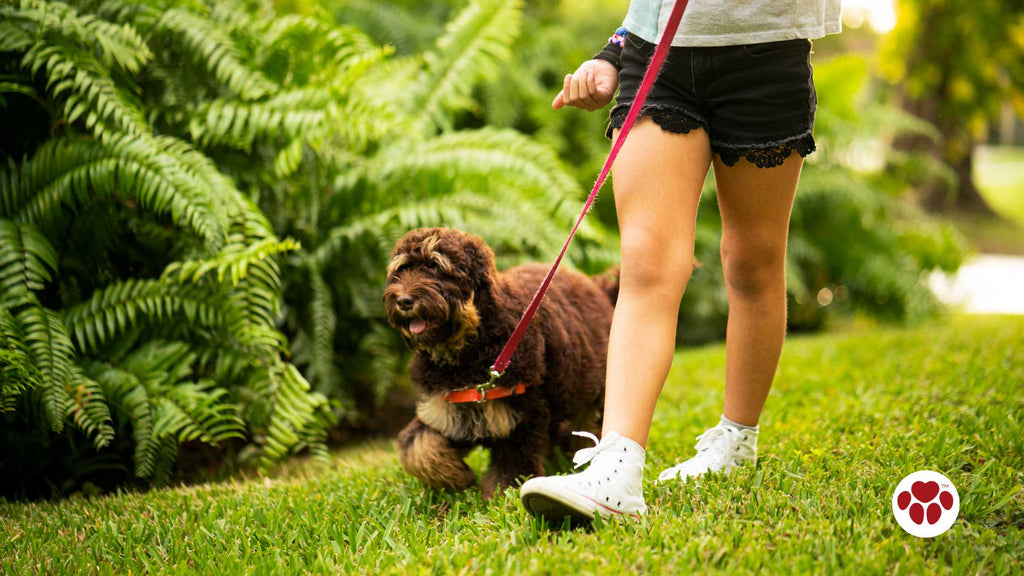
Labradoodle Mental and Emotional Well-being
Labradoodles are intelligent and social dogs that thrive on mental stimulation and human interaction. It's important to provide them with opportunities for mental exercise and socialization. Engage your Labradoodle in puzzle toys, obedience training, and interactive play sessions to keep their minds sharp and prevent boredom. Additionally, spending quality time with your Labradoodle through walks, cuddles, and playtime helps strengthen the bond between you and promotes their emotional well-being.
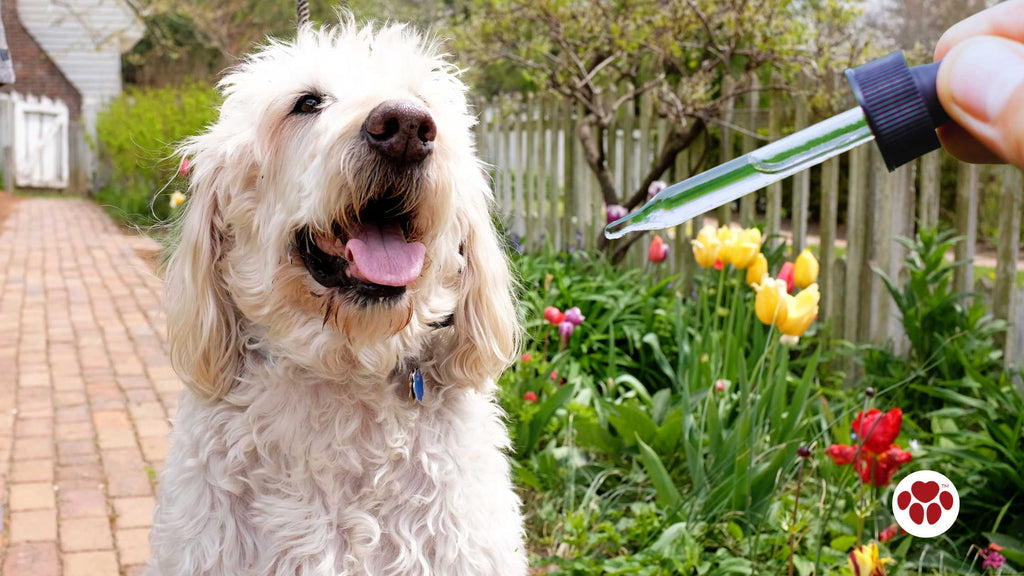
Is CBD Oil good for your Labradoodle?
CBD oil is sometimes used as a supplement for pets, including Labradoodles, due to its potential therapeutic effects. If you want to consider CBD Oil for your dog, consult a holistic veterinarian familiar with your pet's health before giving CBD oil to your Labradoodle.
Look for high-quality CBD oil formulated for pets like CBD Full-Spectrum Happy-™ Oil, and start with a low dosage. Monitor any changes and be alert for side effects. Check the legal status of CBD oil in your region and choose products that comply with regulations.
In conclusion, ensuring the health and well-being of your Labradoodle requires a holistic approach. From proper nutrition and exercise to grooming and preventive care, each aspect plays a vital role in keeping your furry friend happy and healthy. By following the advice and recommendations in this guide, you'll be equipped with the knowledge to ensure your Labradoodle leads a pawsome life.















